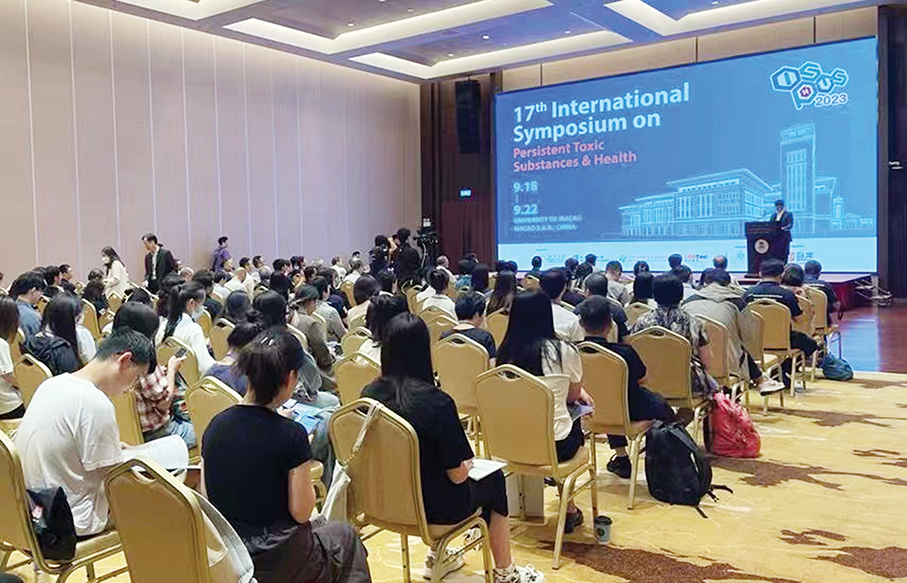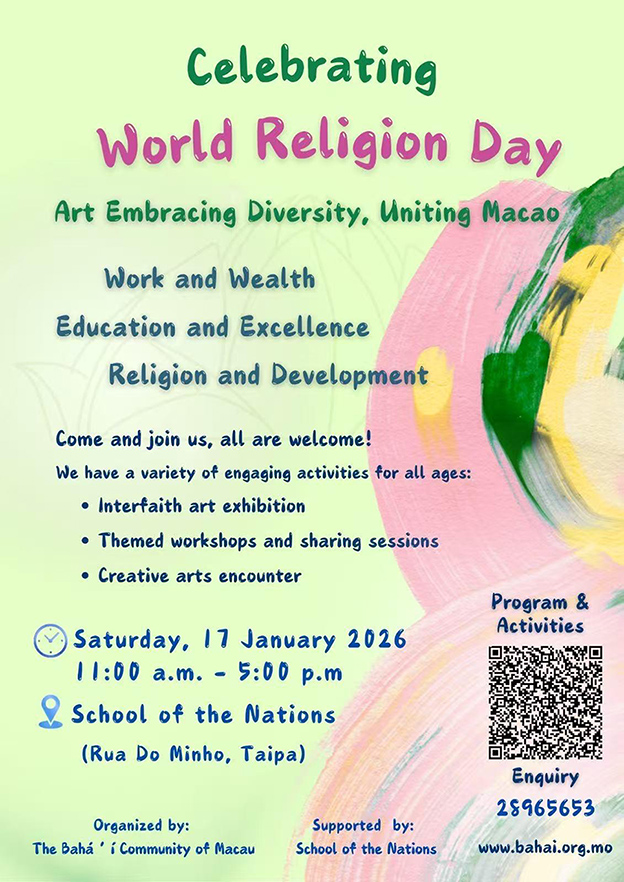The 17th International Symposium on Persistent Toxic Substances & Health (ISPTS), jointly organised by the University of Macau (UM), Hong Kong Baptist University (HKBU), Research Centre for Eco-Environmental Sciences (RCEES) of the Chinese Academy of Sciences (CAS) as well as UMTec Limited, kicked off yesterday morning at the Multi-Function Hall on the first floor of the UM Guest House.
The ISPTS, dating back to 2004 when it held the first seminar, is an international event for scientists to share the latest research progress and developments in the field of environmental health and ecotoxicology.
The 5-day symposium, conducted entirely in English, has brought together domestic and international experts and scholars to discuss topics related to persistent toxic pollutants, including their environmental impact, monitoring and assessment methods and sources, as well as governance and remediation technologies.
According to a UM statement, the ongoing event comprises a series of plenary lectures and parallel sessions as well as a “Young Scientist Award” presentation session. The statement said that the symposium also includes a poster session to display more than 50 scientific research posters produced by young scholars from various academic institutions, two of which upon professional evaluation will be selected to receive the “Young Scientist Award”.
Day one of the event was attended by about 150 visiting scholars, researchers and students from Macau, Hong Kong, mainland China, Taiwan, Australia, and Canada.
UM Vice Rector Mok Kai Meng said in his opening remarks that UM has been actively conducting unique and high-quality research in line with the global environmental toxic pollution issues. He added that through international collaboration, a significant amount of fruitful research has been carried out over the past decade, making a contribution to both academia and the industry. According to Mok, the symposium serves as a platform for researchers and academics worldwide to conduct in-depth knowledge exchanges on cutting-edge topics in environmental health, in the hope of initiating further research partnerships.
Michael Siu, a Canadian scholar and vice-president of Research & Innovation at the University of Windsor, said in his plenary speech regarding the environmental impact on human health that over 90 percent of cancer incidence is closely associated with environmental pollution. He highlighted that the geographic distribution of cancer incidence reflected an interplay between genetic and environmental factors. “Nasopharyngeal cancer (NPC), for example, rarely occurs in the US but in China it is considered one of the most common types of head-and-neck cancer. Even within China, NPC is largely concentrated in the southeastern regions including Guangdong and Macau,” he added, emphasising the role that environmental factors play in disease distribution.
Associate Professor of UM Faculty of Science and Technology Lok Man Hoi said in response to reporters’ questions about measures to tackle Macau’s air pollution problem that much attention from both the public and private sectors has been paid to the reduction of toxic substances in the air such as particulate matter, nitrogen oxides (NO2), ozone (O3) and sulphur dioxide (SO2), which in the case of Macau are mostly produced through vehicle exhaust emissions. “The consequences of contamination are not always straightforward, as different pollutants can have different effects on the immune system, which can then lead to complex pathologies. Such complex systems would require an extensive research effort in order to get a better understanding of how pollutants are formed and to produce better forecasts of when air quality will be poor,” he added, underlining the importance of deploying a more advanced air quality monitoring system in Macau.

UM Vice Rector Mok Kai Meng addresses the opening ceremony of the ISPTS yesterday at the UM Guesthouse. – Photo courtesy of TDM







